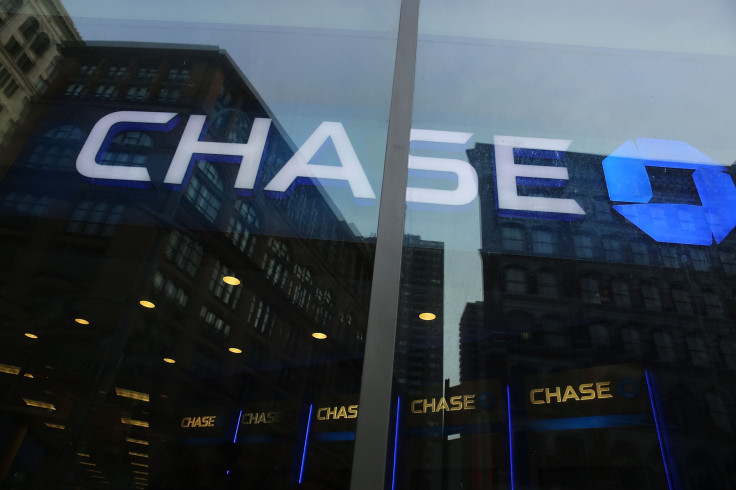How Chase And The Big Banks Undermine Climate Action

Virtually all Democratic hopefuls have prioritized climate change in their campaigns, including several who have released detailed, costed plans for meaningfully tackling it. Several of the front runners support the Green New Deal and have pledged to not take any money from the fossil fuel industry. Washington Gov. Jay Inslee’s entire campaign is focused on climate.
But the fact is that any progress on this front is close to impossible if billions continue to be poured into coal, oil and gas projects.
And that’s exactly what big banks continue to do.
Jamie Dimon, CEO of JPMorgan Chase, is uniquely culpable among the titans of finance for the simple reason that his bank is by far the world’s biggest banker of climate change. Between the signing of the Paris Agreement at the end of 2015 and the end of 2018, Chase bankrolled coal, oil and gas companies to the tune of almost $200 billion. This is a stunning 29% more than any other bank. While some major global banks, including Morgan Stanley and Goldman Sachs, have reduced their fossil fuel finance in each of the last two years, Chase’s financing grew between 2016 and 2018.
Dimon will be in Chicago this Tuesday for Chase’s annual shareholder meeting. As in previous years, we can expect his speech to his owners to contain a lot of words about how much he is doing to make them money, and a lot of words about how concerned he is about the state of the country and what policymakers should be doing about it. But, as in previous years, we can expect not a word about the warming climate.
Every year Chase writes a long letter to shareholders. This year it is 51 pages long. In it he talks about “important forward-looking issues” and frets about a “near-term economic and political backdrop” which is “increasingly complex and fraught with risks — both known and unknown.” Surely climate change is a massive and very much “known” risk. Yet Dimon does not so much as mention the word “climate” in his letter.
But at least he is consistent: not one of his annual shareholder letters in the last decade has mentioned the climate. These were years that brought us Superstorm Sandy on Dimon’s Manhattan doorstep, deadly lethal fires across the US West, unprecedented cyclones and typhoons across the tropics, disastrous droughts across Africa, Asia and the Middle East. They also brought a steady drumbeat of scientific reports on the urgent need to transition from dirty to clean energy; papers from the Pentagon arguing that climate change is a serious national security issue; and financial reports from analysts and regulators such as the Bank of England and the Federal Reserve Bank of San Francisco showing that climate change poses a systemic risk to the global financial sector.
Rep. Tashida Tlaib (D-MI) asked Dimon and his fellow big bank CEOs at a hearing of the House Financial Services Committee last month whether they believe that “climate change is a serious risk to the financial system, not only the planet?”
Michael Corbat, CEO of Citi, answered simply, “Yes.” Morgan Stanley’s James Gorman made the obvious point that “If we don’t have a planet, we’re not going to have a very good financial system.”
But Dimon? His answer was “Not directly to the financial system.”
JP Morgan Chase’s longest-serving current board member is Lee R. Raymond – former CEO of Exxon, and then ExxonMobil. By keeping Raymond at the top of the bank, JPMorgan Chase has also been joined at the hip with one of the world’s most notorious climate denialists.
During Raymond’s time at ExxonMobil the company covered up the findings of its own climate research and was a major funder of the climate denialism movement of the late 1990s and early 2000s which did incalculable harm to the planet in terms of misleading the American public and policymakers on the reality of climate, and so delaying any action at a critical time. Raymond told a meeting of the World Petroleum Congress on the eve of the Kyoto treaty negotiations in 1997 that the globe was cooling, that if carbon dioxide did indeed cause global warming that it was only “a tiny sliver of the greenhouse pie,” and that government action to limit emissions “defies common sense.”
As the world’s worst banker of fossil fuels, Dimon obviously bears responsibility for the climate chaos caused by burning those fuels. Yet as the powerful CEO of what is by some metrics the world’s largest bank, Dimon also has a unique capability to step up and help bring the planet back from the brink. To do this, he should announce that Chase will stop financing the worst fossil fuels such as coal and tar sands, and set a long-term target to phase out all support for fossil fuels — and a plan on how to achieve this. The U.N.’s scientists say we must cut fossil fuel emissions in half by 2030 and effectively phase them out by 2050.
Dimon is in his final years as head of JPMorgan Chase. He faces a clear choice for how he will be remembered. He can forge a legacy as the person who steered the banking sector away from its current path of driving the world toward disaster. Or he can continue blithely with business as usual, and write himself into history as the bank CEO who did the most to drive the climate crisis.
Patrick McCully is director of the climate and energy program at Rainforest Action Network and a great-great-grand-nephew of John Pierpont Morgan
© Copyright IBTimes 2025. All rights reserved.





















